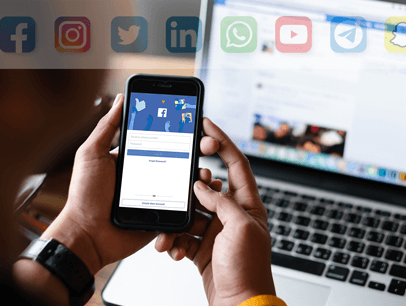
You’re told to network because it’s important. Maybe you’re searching for a job, building a business, learning something new, conducting a campaign, applying for a program, or making connections for another reason.
But many people don’t like networking. It can often feel superficial and insincere. Or maybe you’ve tried to network and you’re not making the right connections or reaching your goals.
Successful networking requires preparation. The more you prepare, the more authentic you can be, and the more successful you will be. For Lee Hwa Ching, DTM, District 51’s Program Quality Director, from DTM Toastmasters Club in Kuala Lumpur, Malaysia, it started with a clear mission.
Start With a Goal
When Ching was establishing herself in her career, she noticed certain people were advancing in jobs and careers before others who were just as or more qualified. She discovered strong networks were an important factor.
As she grew in her sales and marketing career, she studied networking and found her mission. She wanted to help youth achieve their dreams and objectives. For years, she wanted to write a book about networking to share what she knew and help others succeed.
After joining Toastmasters, she found the opportunity to achieve her dream. Using the High Performance Leadership program—a practical project that enables you to hone and demonstrate your leadership skills—to propel her forward, she wrote her book, Everyone Can Network, with another author in three months.
She also leveraged her Toastmasters network while researching her book to gain insights from others. “I wanted to know what people needed from networking,” Ching says. “I told people my dream, and they supported me. Sharing my story made people feel they were part of my mission.”
The key is understanding why you want to network. “If you don’t have a purpose, it’s not worth it,” says Ching.
Do Your Research
Once you have a clear goal in mind, it’s time for research. In her book, Ching divides networking into three phases: “Find, Win, Keep.” Find is all about preparation and involves four steps: sources, qualifying, pre-action, and action call. Throughout this phase, you identify potential contacts, establish criteria for screening them depending on your goal, conduct research on the sources and the networking opportunity, and secure your connection by reaching out to them.
Victor David, from City Tattersalls Toastmasters Club in Sydney, Australia, also emphasizes the need for research. Before any networking event, David reviews the attendee list, if one is available. When using online platforms, he looks for people in the same industry or with common interests. “You need to be aware of the potential of the relationship,” says David. He notes that potential could range from a friendship or mentorship to an introduction or referral to a sale.
From her book research, Ching learned people are afraid of starting a conversation and don’t know how to keep it going. She recommends preparing some Table Topics®-style questions based on the common interests you discover during your research to help establish a connection.
In this Toastmasters Podcast episode, networking expert Victoria Salem shares advice on how to build valuable and meaningful relationships through socia media.
Focus Your Energy
Research will also help you decide if a networking opportunity is the right one for you. “Don’t network without purpose or in the wrong place,” says Ching. You want to make sure your time and energy—and any money you may have to spend, such as an event fee or travel—are worth it.
Teresa Dukes, DTM, Past International Director, from the Speak Easy at Martlesham Speakers’ Club in Martlesham, England, agrees. As an executive coach and trainer, she advises clients they need to choose the right stage—literally or figuratively—to ensure they’re in front of the right people.
If you’re attending an event, she recommends developing a plan to connect with people there and then scheduling a one-on-one meeting with them at a later date. That allows you to meet more key people during the event and have separate quality time to get to know them better. “You only have a limited time at the event,” says Dukes. “Prepare more effectively, and you can be more efficient and effective with the time you have.”

Develop Your Pitch
To be most effective, it’s important to know your pitch going into an event—some strong points about you that are relatable. David has heard too many people try to cram in everything they do into one sentence. “People will only remember one or two things about you when you are asked ‘what do you do,’ so consider which points you want to be remembered for,” he says.
When Dukes meets new people, she doesn’t give her title. “People don’t care what your title is; they care what you can do for them,” she says. She recommends telling people explicitly what you do, such as “I help people …” With a polished, succinct opening line, she says they’ll ask for more.
When helping clients fine-tune a networking pitch, Dukes uses a formula she calls OCD, which stands for “Opening, Clients, and Differentiating.” Opening describes what you do. For Clients, you share stories of how you’ve helped others—examples of who you’ve worked with, including who they are and the problems you helped resolve. During Differentiating, you share why you are the best person for the job. The more conversational you can make it, the better it will be received.
Be Authentic
In addition to being conversational, it’s important to be authentic. David enjoys networking, but many of his colleagues don’t. He’s seen a lot of people become hesitant, clumsy, or awkward while trying to connect with others. “People would be happy to go to a friend’s barbeque and meet new people,” he says. “Because networking has a business label on it, it gets a bit itchy.”
The more you prepare to network, the more authentic you can be, and the more successful you will be.
He created an online training to help people learn how to network better and advocates reframing the opportunity to connect. “Don’t view networking as difficult or think you have to be someone else,” says David. “Just view it like you’re being introduced to people at a friend’s party—but in a professional environment.”
Ching describes networking as a competency. At its core, it’s about building relationships and developing real connections. “You must build rapport. Then you build a relationship. And then you build trust,” she says. “Many people will kill the relationship by just going in and trying to ‘sell.’” She says it was her sincerity and belief in her dream that made all the difference when she networked.
Need some extra motivation for networking? Watch this video to learn how members are creating stronger connections with others through the Strategic Relationships path in Pathways.
Remember These Tips
It’s important to remember that networking is a two-way street. In fact, Dukes approaches it as helping others. “I think about it as a chance to help someone else,” she says. “It’s not about what you can get; it’s about what you can give.”
Writing down your goals can help solidify them. It can also keep you focused when making decisions about where to spend your time, energy, and money for networking. Dukes has a vision board to keep her goals visible.
Establish an organizational system ahead of time so you can keep track of your contacts and how you will follow up. “Follow-up will reap you more benefits than anything else you do,” says Dukes.
Networking benefits aren’t always evident right away. Oftentimes, you will realize them later. You may also receive unexpected benefits. David connected with two people who became his unofficial mentors.
The more you prepare to network, the better you set yourself up for success. As Dukes says, “You can’t just show up and wing it. That’s the worst thing you can do. The better prepared you are, the more you’ll benefit from it and others will, too.”
Jennifer L. Blanck, DTM , has more than 25 years of career development and advising experience. She is a member of 5-Star Toastmasters Club in Arlington, Virginia, and AAMC Toastmasters in Washington, D.C., as well as a regular contributor to the Toastmaster magazine. Learn more at jenniferlblanck.com.
Related Articles

Professional Development
How to Network Like a Pro

Personal Growth
Create a Conversation Résumé

Personal Growth
The Benefits of Networking Online

Professional Development



 Previous
Previous

 Previous Article
Previous Article